WATCH: Dig This - Guernsey has a burgeoning film industry, an independent award nomination could help it take off

Excitement is building around Guernsey’s growing film industry, with the qualification of Whispers of Freedom for the British Independent Film Awards having the potential to open the door even further.
Set in 1980s East Germany - during the twilight years of the Cold War - the short film is based on the true story of Chris Gueffroy, one of the last attempted escapees from East Berlin.
Produced with vital support from Guernsey Arts and the DDR Museum in Berlin, it is one of a growing number of local film projects, with efforts being made to set up a Guernsey Film Institute to work with the government to move the industry forward.
Whispers of Freedom was written and directed by local filmmaker Brandon Ashplant and produced by Academy Award nominee Jonathan Tammuz.
The inspiration for the film
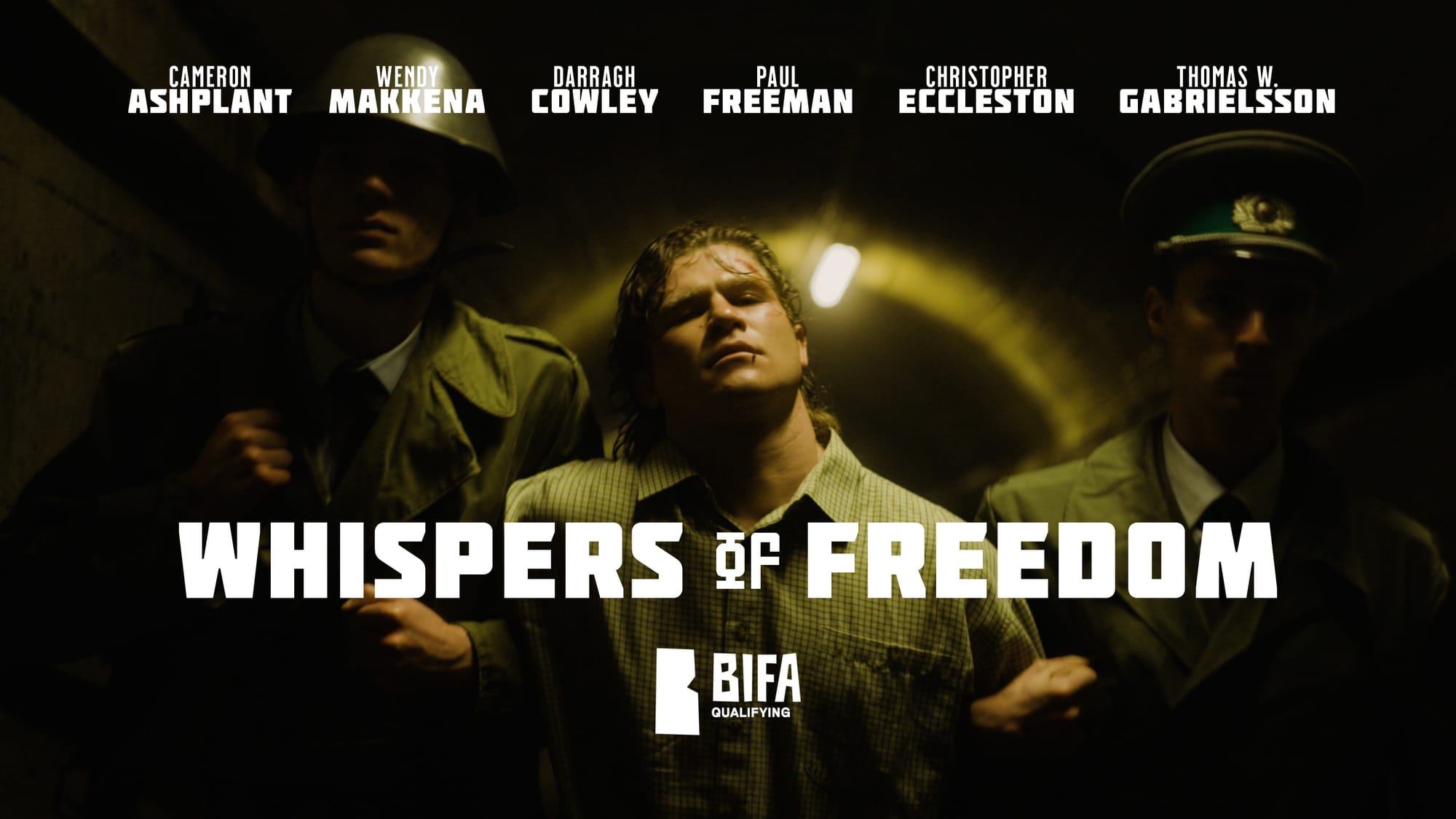
Brandon’s interest in history developed after he left school as he realised how it feeds into the world we see today.
He began to explore the Cold War period, something a generation like him born in the 90s knew less about, discovering a book by Katja Hoya called Beyond the Wall which brought an East German perspective on that time.
“I was really fascinated by that and then I thought there's something here, it felt like nothing really had been brought to screen or brought to life telling one of these stories. So I came at it from that angle.”
That was when he discovered Gueffroy’s story.
“I think there's always something tragic about someone doing the last of something.”
Who was Chris Gueffroy? Click for more...
Chris Gueffroy (21 June 1968 – 5 February 1989) was a 20-year-old East German waiter and former budding gymnast who became the last individual to be shot and killed by border troops while attempting to escape over the Berlin Wall.
Born in Pasewalk, he moved to Berlin as a child and was briefly nurtured for a gymnastics career at SC Dynamo Berlin—but rejected an officer track in the National People’s Army, which later denied him university study. By 1985, he was working in various restaurants in East Berlin, increasingly frustrated by corruption and the loss of personal freedom.
In mid-January 1989, upon learning he faced conscription into the army, he and his friend Christian Gaudian resolved to flee to West Berlin without applying for an exit visa. They heard rumors that the GDR “shoot-to-kill” order (Schießbefehl) had been lifted—and that the Swedish Prime Minister’s visit would mean the border was less patrolled—these assumptions proved fatally wrong.
On the night of 5 February 1989, they attempted to cross near the Britz district canal. Gueffroy was fatally shot—struck by two rounds—while Gaudian was seriously wounded, arrested, sentenced to three years in prison, and later released and transferred to West Berlin in October.
Although often described as the last death at the Wall, he was the final person fatally shot; Winfried Freudenberg died days later in a balloon crash attempting escape.
After reunification, the guards involved were prosecuted; Ingo Heinrich, who fired the fatal shots, received a suspended sentence. Past and regional GDR officials were also later tried and given suspended sentences for their roles.
Today, Gueffroy is commemorated at multiple memorial sites across Berlin, including near Reichstag’s “White Crosses,” the “Window of Remembrance,” and a monument at the Britz canal erected in 2003 on what would have been his 35th birthday.
How local support got the film off the ground
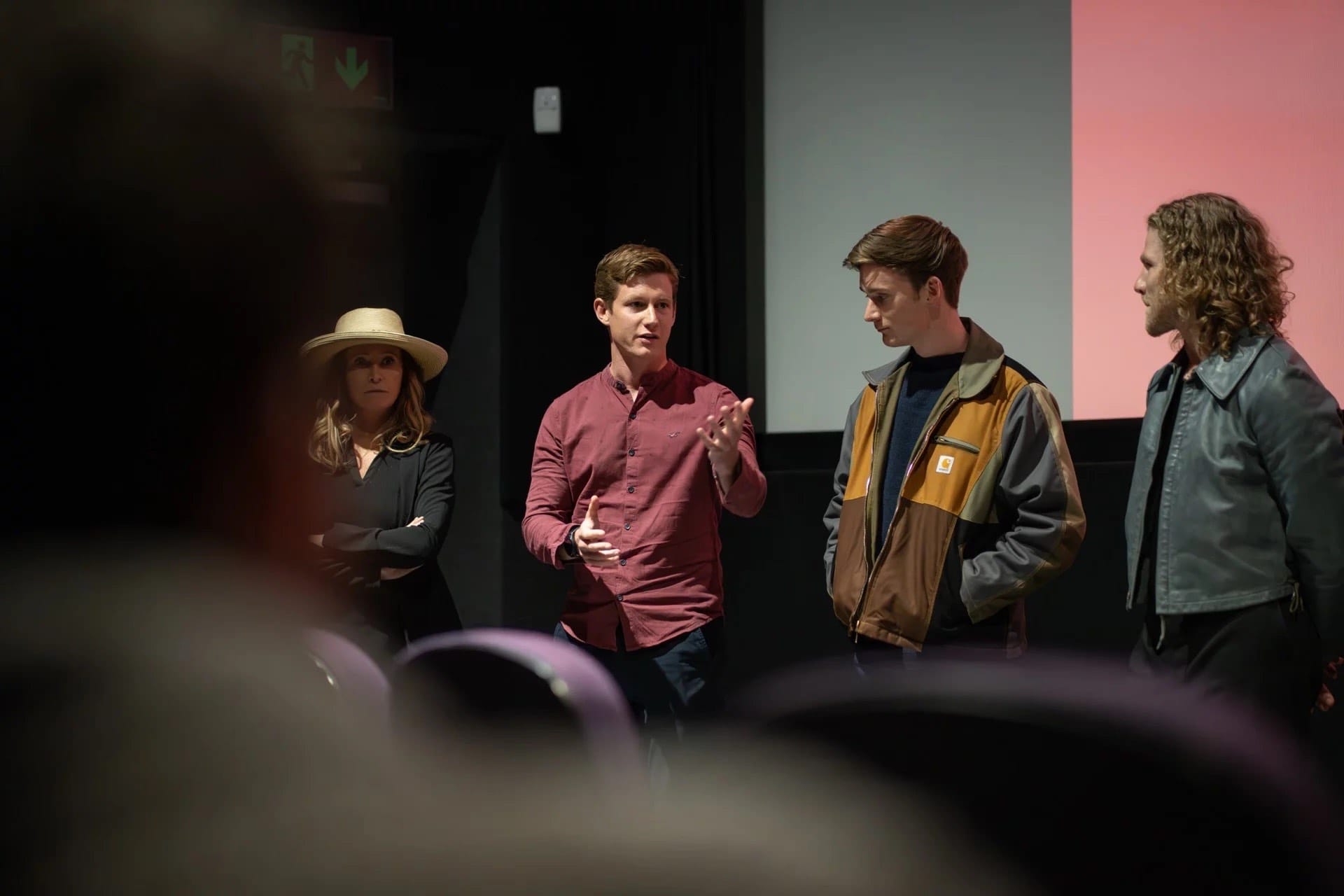
Filmmaking is complicated.
This production involved 148 cast and crew, creating a film that is 25 minutes long.
It was around two years from pre to post production.
Elements like recreating the Berlin Wall all added to the complexity.
For Brandon it was a huge learning curve.
Getting the financing right was the hardest part - and Guernsey Arts was central to that.
“They were absolutely critical to moving the dial and getting us the early seed funding.
“And from there, we managed to leverage that.
“They put us into contact with a few private film supporters locally who very kindly came on board and wrote a few more cheques, to put it bluntly.
“By this point, we'd gone through the motions of writing the scripts, gone through several iterations, 28,30 drafts. We storyboarded it then pitched it as an idea to more on the private sponsor side.
"Then we went out to the DDR Museum in Berlin, who came along and eventually put up the lion's share, it's probably fair to say.
“With that came a whole host of other tangible benefits. They've got the biggest collection of East German objects, household items, in the world. So they obviously were able to ship some of that to the island for the production. They were incredibly supportive beyond the financial means as well.”
The path to the British Independent Film Awards and beyond
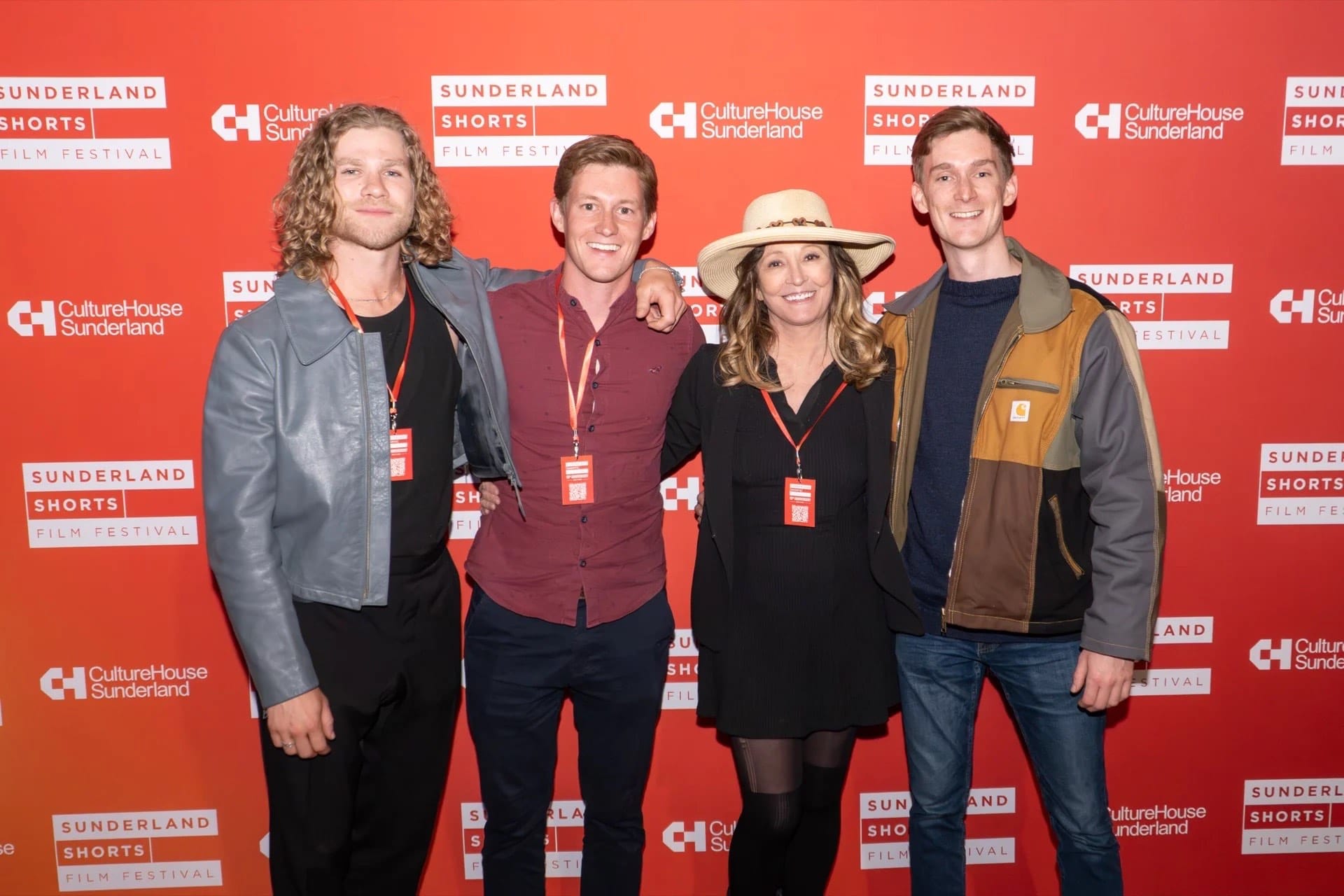
Whispers of Freedom has been out on the festival circuit from early this year and momentum has been building.
One of the early events it was accepted into was the Sunderland Short Film Festival, which is a British Independent Film Awards qualifier, and that snowballed into being accepted into more festivals in the UK and internationally.
That all now includes a trip out to Canada for the Toronto International Nollywood Film Festival in September.
The film will also be having its Hollywood premier in late August.
Acceptance into Worcester, another Bifa qualifier, means it is now on the longlist for what is seen as the second biggest awards ceremony in the UK behind the Baftas.
That type of recognition not only helps the film, a mark on the CV that could also open the door to more funding for future projects, but the industry in Guernsey as well.
Building the film industry and the role of government
There has always been film making in Guernsey, an island where creativity shines.
And another where Guernsey punches above its weight in a way a similar sized down in the UK would struggle to achieve.
But more could be done.
"It's always been there, but maybe the support hasn't always been there. I'm not talking about the States putting up taxpayer money to fund stuff, because that's a whole different conversation.
"But I think certainly maybe the tax environment and the incentive environment economically hasn't been there. Whereas you look to the Isle of Man, you look to Northern Ireland, and they've got a clear business environment laid out by the local government to facilitate film making.”
Since Covid in particular, things have really taken off with locally driven productions.
Brandon name checks people like Alex Bates of White Rock Productions, Lars Jansen with Guernsey Filmworks, his brother Cameron Ashplant with Across the Channel Productions.
“There's so much going on it's hard to keep track of. There's certainly something in the water, something's going right.
"I think the next step, if Guernsey is serious about maybe capturing and bottling this and extending the reach here is a Guernsey Film Institute type organisation, to work with the government to be serious and see how we can move the dial on this now.”
It is hoped that a Guernsey Film Institute will launch soon with early discussions having taken place.
“It does feel that in order to have a business case and have a potential venture capital fund or a private equity fund, or whatever kind of risk capital it is, that institution needs to see that the state is keen to support that. Because if they think the state is going to come down and tax and not be supportive, why wouldn't they go to a Northern Ireland or an Isle of Man or whatever it is?
"There is an argument that there is an offering in Guernsey unlike any other. I know this argument has been made before. Literally the geography of the island, if you go to Grande Rocques and the headland around that, that's a completely different environment to the South coast. The center of the island has got rolling fields.
"Within 25 square miles, Guernsey has got a heck of a lot going on geographically that, if you speak to location scouts and those types of people in the industry, is very appealing.
“If you shoot in the UK and you want to find some sort of desert type landscape, you're going to be hard pressed. You might find it on the south coast of Wales, but that's a heck of a drive from London.
"We're very nimble as an island, and have a huge offering in terms of the landscape versatility. So when you think about that, that's appealing for location scouts, they're pitching the island to producers. The producers are then thinking with the business team, well, is the tax environment right?”
There could be ripple effects, more bed nights, equipment being hired out, restaurants being filled.
What is envisaged is not about blockbusters being filmed here, but more high level independent productions.
“Whenever you talk to politicians, and we obviously had a recent election, they seem to stress the importance of diversifying the economy, and this does feel like a tangible means of doing that. And it's far from the kind of traditional business route of finance. It's a creative outlet.”
Whispers of Freedom is screening at the Princess Royal Centre for Performing Arts on Friday 12 September.
Tickets can be purchased online or via the box office at the PRCPA.


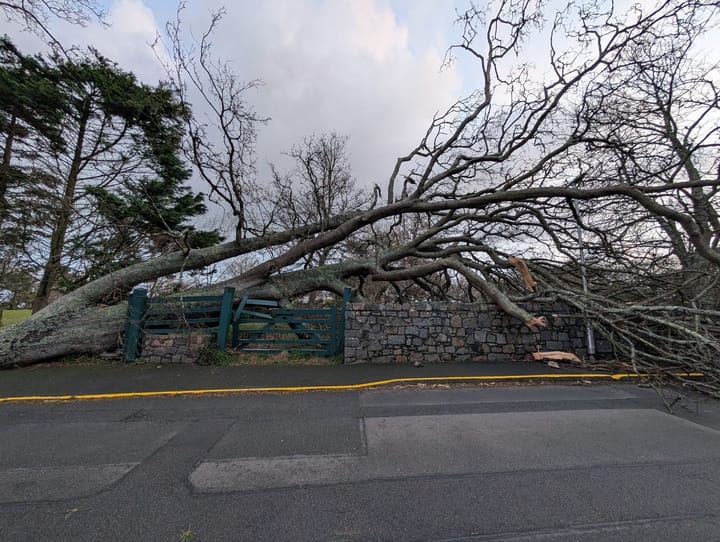
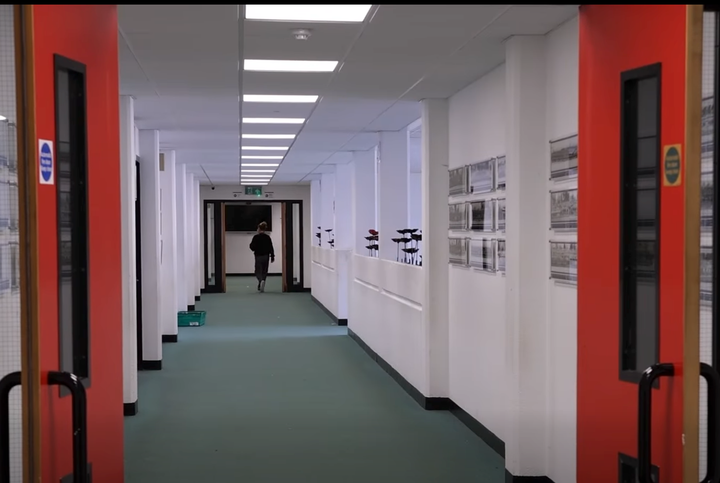
Comments ()